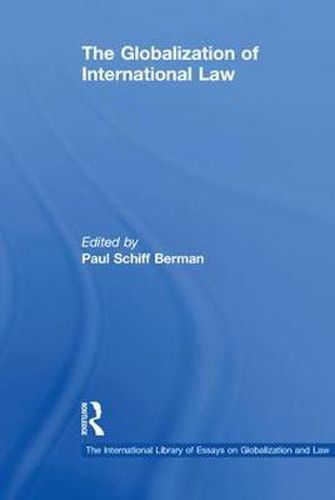Readings Newsletter
Become a Readings Member to make your shopping experience even easier.
Sign in or sign up for free!
You’re not far away from qualifying for FREE standard shipping within Australia
You’ve qualified for FREE standard shipping within Australia
The cart is loading…






‘International law’ is no longer a sufficient rubric to describe the complexities of law in an era of globalization. Accordingly, this collection situates cross-border norm development at the intersection of interdisciplinary scholarship on comparative law, conflict of laws, civil procedure, cyberlaw, legal pluralism and the cultural analysis of law, as well as traditional international law.
It provides a broad range of seminal articles on transnational law-making, governmental and non-governmental networks, judicial influence and cooperation across borders, the dialectical relationships among national, international and non-state legal norms, and the possibilities of ‘bottom-up’ and plural law-making processes. The introduction situates these articles within the framework of law and globalization and suggests four important ways in which such a framework enlarges the traditional focus of international law. This book, therefore, provides a crucial reference for scholars and practitioners seeking to understand the varied processes of norm development in the emerging global legal order.
$9.00 standard shipping within Australia
FREE standard shipping within Australia for orders over $100.00
Express & International shipping calculated at checkout
Stock availability can be subject to change without notice. We recommend calling the shop or contacting our online team to check availability of low stock items. Please see our Shopping Online page for more details.
‘International law’ is no longer a sufficient rubric to describe the complexities of law in an era of globalization. Accordingly, this collection situates cross-border norm development at the intersection of interdisciplinary scholarship on comparative law, conflict of laws, civil procedure, cyberlaw, legal pluralism and the cultural analysis of law, as well as traditional international law.
It provides a broad range of seminal articles on transnational law-making, governmental and non-governmental networks, judicial influence and cooperation across borders, the dialectical relationships among national, international and non-state legal norms, and the possibilities of ‘bottom-up’ and plural law-making processes. The introduction situates these articles within the framework of law and globalization and suggests four important ways in which such a framework enlarges the traditional focus of international law. This book, therefore, provides a crucial reference for scholars and practitioners seeking to understand the varied processes of norm development in the emerging global legal order.